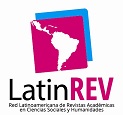MACHIAVELO Y SUS LECTORES ARGENTINOS
INTERPRETACIONES DE JURISTAS Y PROFESORES DE DERECHO, 1920-1940
Keywords:
Macchiavelli, Republicanism, Liberalism, AuthoritarismAbstract
At the beginning of the 20th century, the reading and reception of Machiavelli in Argentina had a winding and fragmentary history. Referred to and mentioned by central authors of political thought and intellectual life of the nineteenth century, such as Juan Bautista Alberdi or Domingo Faustino Sarmiento, Machiavelli had been alluded to denigrate characters (for example, Juan Manuel de Rosas), or to repudiate behaviors that were associated with the Florentine: arbitrariness, violence, tyranny, perfidy, deceit, lies. Criticism of Machiavelli was a common denominator between nineteenth-century liberals and anti-liberals of the first half of the twentieth century (certainly because they saw in him their respective adversaries, that is, because they attributed opposing phenomena to his work and his place in history: tyranny and freedom, respectively). From this point of view, the reception of Florentine among jurists and academics of Argentine law offers a privileged point of view to notice counterpoints within the same political current or of thought or coincidences, perhaps unthinkable or at least surprising at first sight, between figures located in doctrinal antipodes.
Downloads
Published
How to Cite
Issue
Section
License
LicenseAtribución — Usted debe dar crédito de manera adecuada, brindar un enlace a la licencia, e indicar si se han realizado cambios. Puede hacerlo en cualquier forma razonable, pero no de forma tal que sugiera que usted o su uso tienen el apoyo de la licenciante.
NoComercial — Usted no puede hacer uso del material con propósitos comerciales.
SinDerivadas — Si remezcla, transforma o crea a partir del material, no podrá distribuir el material modificado.
No hay restricciones adicionales — No puede aplicar términos legales ni medidas tecnológicas que restrinjan legalmente a otras a hacer cualquier uso permitido por la licencia.










